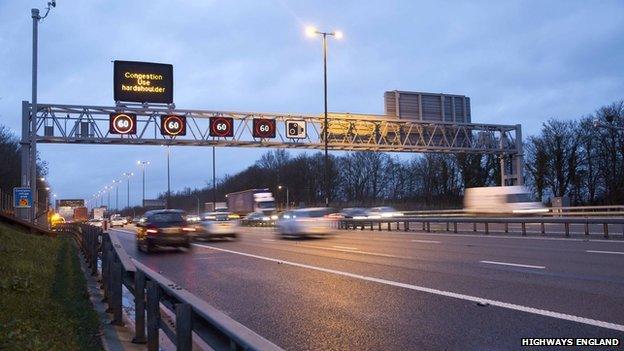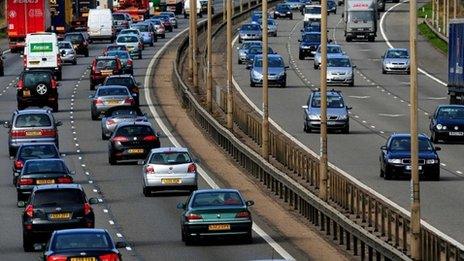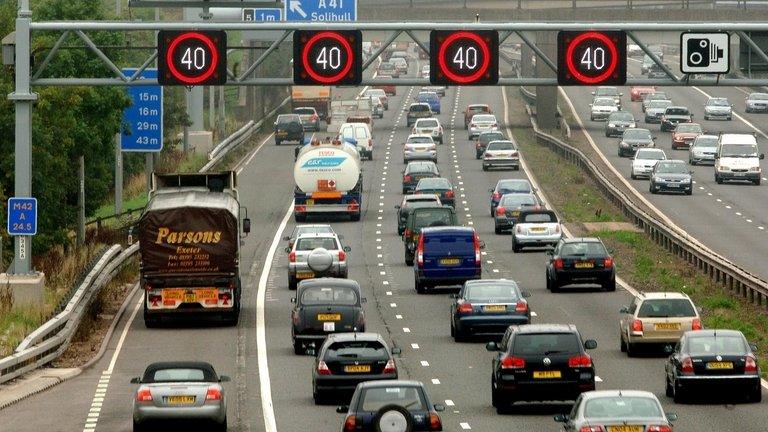M3 'smart motorway' £129m contract awarded
- Published

The scheme will see part of the M3 changed to four lanes, with the hard shoulder used as a permanent lane
A £129m contract to convert part of the M3 in Surrey and Hampshire to a "smart motorway" has been awarded by the Highways Agency to Balfour Beatty.
The project will see the M3 between the M25 in Surrey and Fleet in Hampshire changed to a four-lane road, with the hard shoulder used as a permanent lane.
Electronic signs will be installed to manage traffic flow.
The company said preparation would begin next month with building work due to begin in the autumn.
Smart motorways, external use technology to vary speed limits in response to driving conditions. There are different types of smart motorway, with some making use of the hard shoulder.
'Air quality concerns'
The scheme, which covers 13.4 miles from junction 2 to junction 4a, is due to be finished by spring 2017.
Balfour Beatty said the upgrade would increase capacity, reduce congestion and shorten journey times for the 120,000 motorists using that part of the network each day.
Project director Julian Lamb said traffic management during the work would include 50mph speed restrictions, contraflows and narrow-lane running.
But he said lower speed limits helped traffic flow, with lane closures limited to night-time and dual three-lane running for daytime and peak flows.
The M3 passes through Chobham Common - an area of heathland in Surrey.
Balfour Beatty said it would be using a sustainable design which took ecology into account, and natural habitats would be reinstated and enhanced.
Earlier this month, a plan to impose a 60mph speed limit on that part of the M3 to cut air pollution was put on hold by Transport Secretary Patrick McLoughlin, with the Highways Agency asked to look at other ways of tackling pollution.
The government has said the M3 smart motorway will improve journey times by 15%, but the Highways Agency has raised concerns extra traffic will cause EU air quality rules to be broken.
- Published8 July 2014

- Published13 February 2014

- Published7 March 2013
